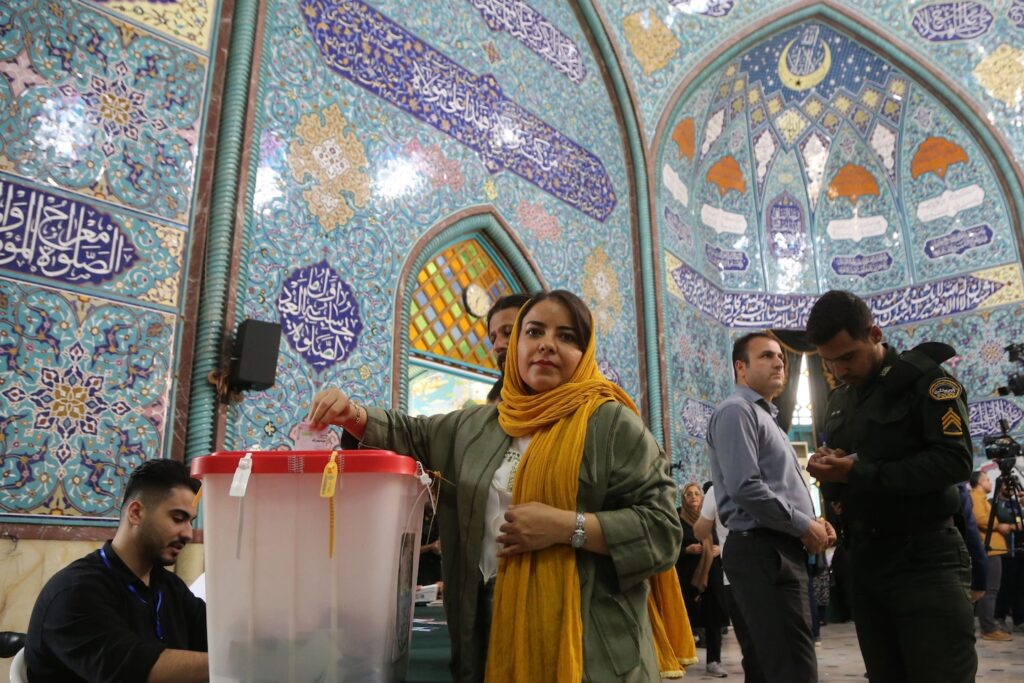Analysts say the outcome is difficult to predict, but the continued low voter turnout is expected to hurt Iran's reformist candidates more than its conservative counterparts. Several Iranians who abstained from the election told The Washington Post that they would have voted for the reformist Pezeshkian over the ultra-conservative Jalili.
“Elections in Iran have lost a lot of meaning,” said Mehdi Mahmudian, a 46-year-old Iranian political activist. He said he would not vote in the general election, nor would he vote in the runoff election. Mahmudian said elections in Iran have come to resemble “religious rituals” rather than serious political activity.
Iran's Supreme Leader Ayatollah Ali Khamenei made an unusual acknowledgement of the low voter turnout ahead of the runoff election but said it was not an indication of dissatisfaction with the government.
Get caught up in
Stories to keep you up to date
“It would be wrong to assume that those who abstained in the first round of voting are opposed to Islamic rule,” he said in a statement on Wednesday.
As voting began on Friday, state media aired footage of voters lining up outside polling stations across the country, following similar coverage aired in last week's election, when official figures showed a low turnout.
Political engagement in Iran has been steadily declining in recent years. Before last week's runoff, 48% of eligible voters had cast ballots in the 2021 presidential election. Turnout was over 70% in 2017, according to results released by state media.
Some Iranians see refusing to vote as an act of rebellion in a country that violently suppresses political protests, while others say they have become apolitical after elected officials repeatedly failed to halt a worsening socio-economic situation.
“People have realized that there's no point in participating, that the election results are invalid, so naturally they don't want to participate anymore,” Mahmoodian said. Many of those who aren't voting are holding out hope that the protests will finally force change, but Mahmoodian acknowledged he's not sure this approach will work.
“I'm going to do everything I can to bring attention to those who have been ignored and silenced by those in power,” Pezeshkian told supporters this week, addressing voter apathy at rallies and presidential debates.
Rozin, a 33-year-old content creator from Tehran who supports Pezeshkian, said he believes the different visions represented by the two candidates will help increase voter turnout.
“A lot of people who didn't vote in the first round are coming to vote in the second round,” she said, adding that Jalili's presence on the ballot is a concern for many Iranians who feel threatened by his conservatism.
Amir Hossein, a worker from Tehran who supports Jalili, said he believes the decline in political participation in Iran is due to disinformation spread by the media.
“The limited turnout is mainly due to foreign media propaganda trying to scare people about living conditions in Iran,” he said, likening international news coverage of Iran today to politically motivated Western coverage of the Soviet Union during the Cold War. Rozin and Amirhossein spoke on the condition that only their first names be used for fear of retaliation.
The elections, triggered by the death of Iranian President Ebrahim Raisi in a helicopter crash in May, are not expected to bring dramatic change to the country, with the Iranian president unable to make policy decisions. But the two candidates offer different views on issues important to voters. During the presidential debate, Jalili evaded a question about Iran's tightening dress code for women. Pezeshkian said Iran needs to change “its view that women are second-class citizens.”
The two candidates also differ on how Iran should engage with the outside world, with Pezechkian arguing for greater engagement with the West to ease Iran's economic crisis, while Jalili has suggested strengthening ties with allies Russia and China to resist sanctions.
Despite other restrictions, Iran's The president sets policy direction and exercises some economic control.
Iran's economy has been crippled by sanctions and is plagued by high inflation, and regional tensions are rising as Iranian-backed groups clash with Israel and its allies in Gaza, Lebanon and Yemen.
“This election presents two views of the country: what should the future be, today?” Jalili asked supporters at a campaign event this week. His opponent's view was one of “hopelessness and 'it can't be done,'” he said.
“But the other path is to choose the path to the future, which is the path of martyrs,” he said. “Weakness cannot be resolved by weakly pleading with some foreign country. We have to resolve this position with strength.”

